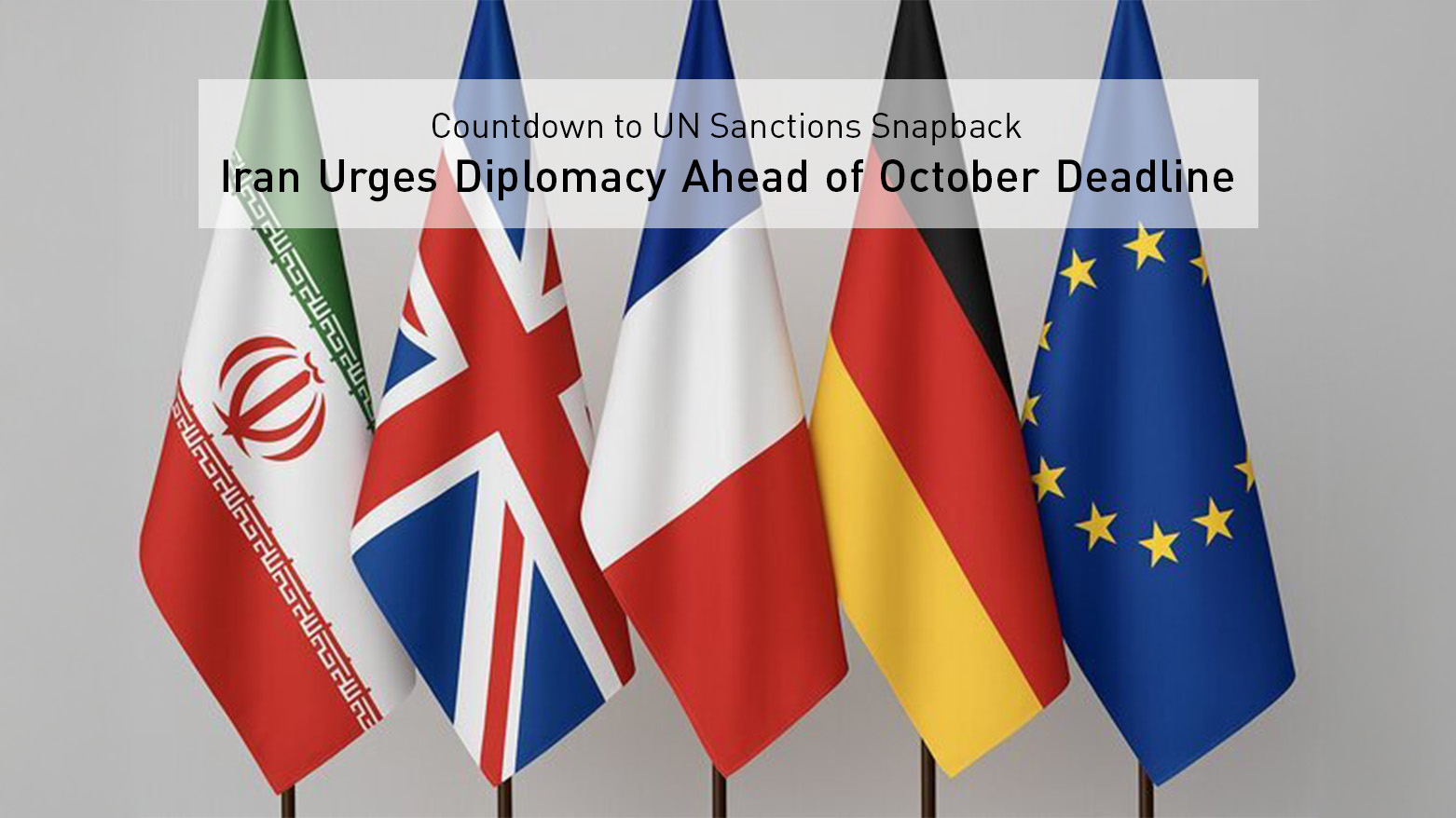Countdown to UN Snapback: Iran Urges Diplomacy Ahead of October Deadline
The coming weeks are expected to be decisive, as European powers weigh whether to escalate pressure on Iran or give diplomacy more time before the October deadline seals the JCPOA’s fate.

ERBIL (Kurdistan24) — Iran held high-stakes talks with European powers on Tuesday in Geneva, seeking to head off the possible re-imposition of sweeping UN sanctions under the faltering 2015 nuclear agreement.
Kazem Gharibabadi, Iran’s deputy foreign minister who attended the discussions with Britain, France, and Germany, said on X that it was “high time” for the European trio “to make the right choice and give diplomacy time and space.”
Iranian foreign ministry spokesman Esmaeil Baqaei later told state television that both sides had agreed to continue contacts “in the coming days.”
The European powers, all signatories to the landmark Joint Comprehensive Plan of Action (JCPOA), have threatened to trigger the deal’s so-called “snapback mechanism” before the end of August. The move would restore UN sanctions lifted under the accord unless Tehran reverses its nuclear advances and resumes full cooperation with International Atomic Energy Agency (IAEA) inspectors.
Nuclear Talks Amid Regional Turmoil
Tuesday’s meeting marked the second round of talks between Iranian and European diplomats since a 12-day war erupted in June between Iran and Israel, following an unprecedented Israeli surprise attack. The conflict derailed Tehran’s nuclear discussions with Washington and led Iran to suspend cooperation with the UN watchdog.
Baqaei argued the European powers had “no legal or moral grounds” to revive sanctions, warning that Iran “will not allow this issue to become a tool of psychological warfare.” He added that Tehran’s priority was “preventing actions or incidents that may be costly for the country.”
The deadline for triggering the snapback mechanism expires in October, after which the UN sanctions would be permanently lifted. According to the Financial Times, however, European diplomats have floated the possibility of extending the cutoff, a move Iran has flatly rejected.
Foreign Minister Abbas Araghchi recently stressed that Tehran was working closely with China and Russia—both JCPOA signatories—to prevent the re-imposition of punitive measures.
A Deal Under Strain
The 2015 nuclear deal, hailed at the time as a major diplomatic breakthrough, was dealt a heavy blow in 2018 when U.S. President Donald Trump unilaterally withdrew Washington and imposed crippling sanctions on Iran. Since then, Tehran has gradually expanded its nuclear program beyond JCPOA limits, while insisting its activities remain for peaceful purposes.
In the months leading up to the June war, Iran and the United States held five rounds of "indirect talks" in an effort to forge a new understanding, but those efforts were left in limbo as regional tensions spiraled.
The coming weeks are expected to be decisive, as European powers weigh whether to escalate pressure on Iran or give diplomacy more time before the October deadline seals the JCPOA’s fate.